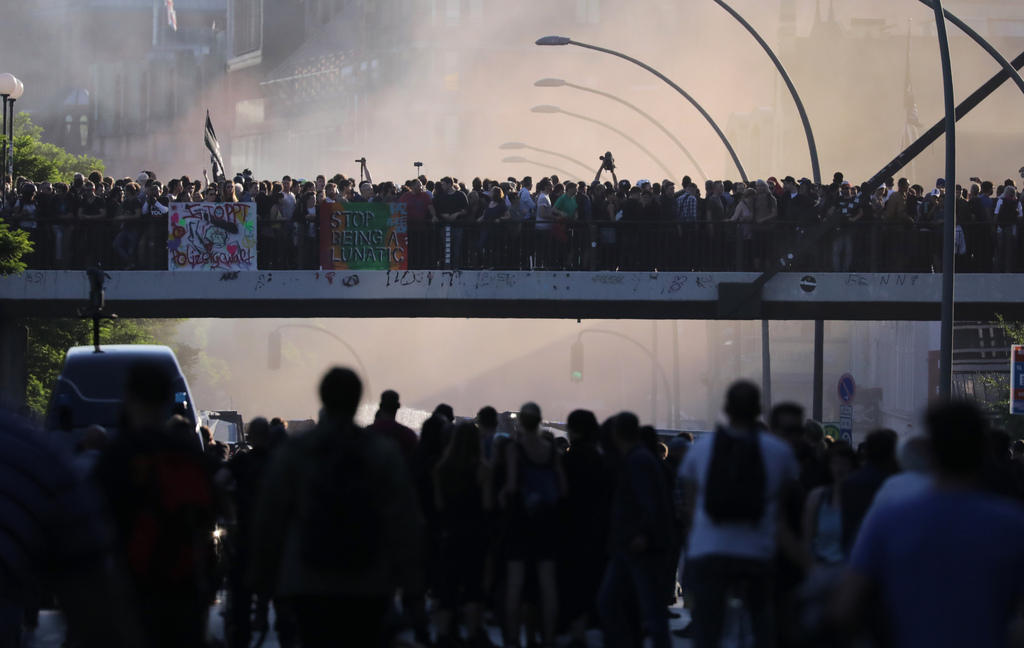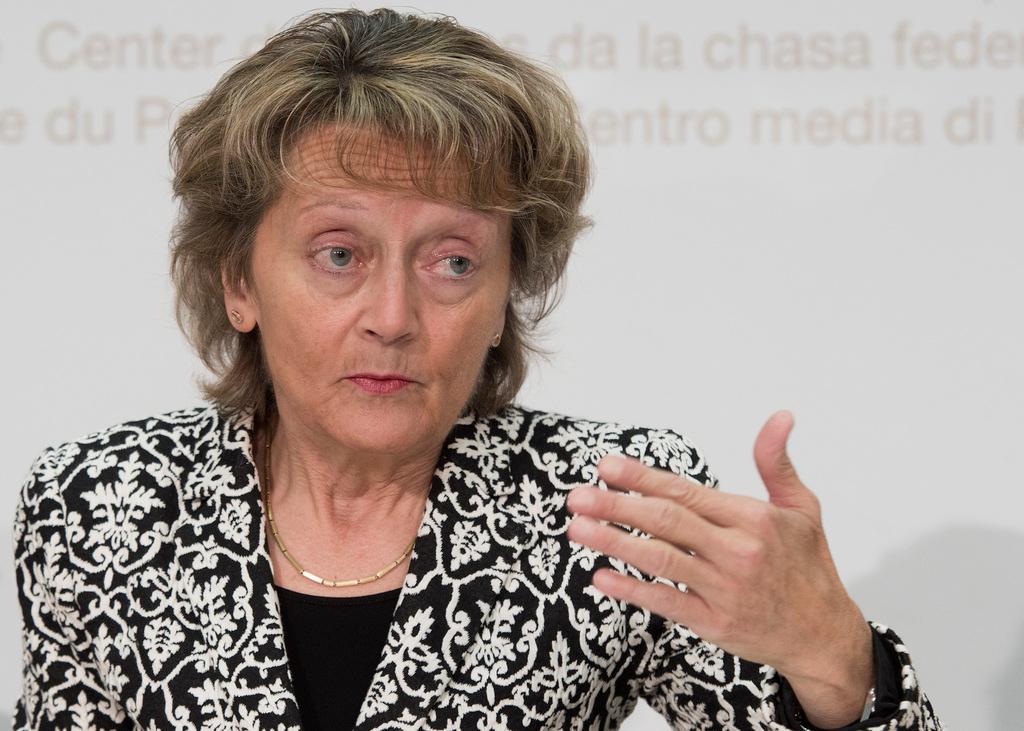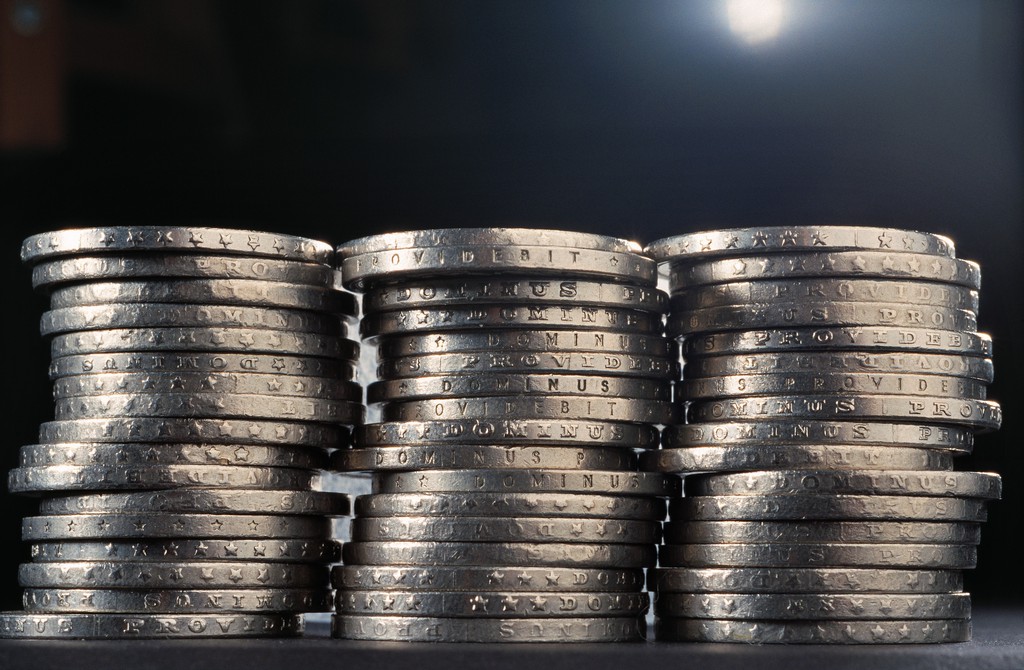Swiss delegation at G20 financial talks

Switzerland took part in financial talks over the weekend among leaders of the Group of 20 economic powers, whose German host set climate change, trade, health, migration and terrorism as the priorities.
The Swiss were represented by Finance Minister Ueli Maurer, who planned stops in Tajikistan, Kyrgyzstan and Kazakhstan after the G-20 summit, and by Jörg Gasser, the state secretary for international financial matters.
Germany and other countries have been concerned that US President Donald Trump could start a trade war with Europe. German Foreign Minister Sigmar Gabriel said as much ahead of the summit. But even if the world is afraid of a trade war the US, Maurer said he sees no reason to fear the Americans.
“I am convinced that we can find solutions with the US because ‘we buy, they buy’; it’s a win-win situation for both. And no one who is reasonable throws out the baby with the bath water,” he told Swiss public television SRF.
The cabinet sees some risk of a trade war, according to Maurer, who called it “a source of concern” though not a clear one yet. Nonetheless, Maurer said his view is that Trump’s pragmatism will win out since the United States, like Switzerland, is an open economy.
“I am convinced that we will find solutions with the USA,” he said. “The USA will continue to be one of the most important partners for Switzerland, and we want it to be part of our culture. We will continue to be a sister republic of the USA in the future.”
Before the start of the financially-focused talks on Friday, the Swiss finance ministry said the focus would be on the resilience of national economies to crises, international financial architecture and sustainable global growth. International tax matters and financial market regulation also were on the agenda.
The financial aspect was one of two main “tracks” for discussions at the two-day summit. “The objective is to detect crises more effectively and at an earlier stage and to prevent the development of global imbalances,” Gasser’s office said in a statement. “At the same time, the international financial, economic and monetary system is to be made more stable.”
German Chancellor Angela Merkel urged world leaders to show unity on climate change, trade and migration. The second track at the talks, to which the Swiss were not invited, dealt with all other topics, including development, international trade, social issues and corruption.
Swiss officials participated in financial talks at Germany’s invitation. The Swiss have been at the table for such talks since 2013. The first invitation came from Russia, citing the alpine nation’s important role in the international financial system. The first Swiss delegation was led by then-finance minister Eveline Widmer-Schlumpf and Thomas Jordan, the current chairman of the Swiss National Bank.
Such discussions include finance ministers, central bank governors and representatives of the World Bank, the International Monetary Fund and other international financial institutions. Switzerland holds one of the 24 seats in the executive boards of the IMF and World Bank.
Major tensions
Leaders from the 20 major industrialised and developing nations met on Friday and Saturday in Hamburg, Germany’s second-biggest city, which had to significantly beef up police patrols to handle the major protests that broke out by anti-globalization activists.
A throng of Swiss activists took part in the protests, which drew tens of thousands of demonstrators after a demonstration on Thursday night called “Welcome to Hell” spawned violence.
Demonstrators set cars on fire and threw rocks at shop windows, and there were some reported injuries. Police in riot gear used water cannons to try to subdue the crowds. There were more than 100 arrests and hundreds of police officers were injured.
Swiss activists took a night train from Basel to Hamburg that arrived on Thursday morning. Swiss public television SRF reported that the movement of Swiss activists was slowed by delays caused by police inspections and the movement of security forces.
German federal police tweeted a video of activists arriving in Germany. It said the special train from Basel had 630 people on board and the inspections were carried out in close collaboration with the Swiss border guard and cantonal police in Basel City.
Pressemitteilung der #BPOLExternal link zur Ankunft des #ZuG20External link in #HamburgExternal link #G20HAM17External link https://t.co/qlHqZ2LZBZExternal link *mm pic.twitter.com/2DEskD3nmvExternal link
— Bundespolizei Nord (@bpol_nord) July 6, 2017External link
Swiss participation
The spotlight was on Trump, whose policies left him isolated on climate, trade and other matters. Trump met for two and a half hours with Russian President Vladimir Putin for the first time, among the world leaders arriving in Hamburg. They reached an agreement for a ceasefire in southwest Syria.
Switzerland tried in the past to gain membership in the G20, since its economy is considered among the 20 biggest in the world. In 2015, the World Bank ranked the size of the Swiss economy at 19th globally, with a gross domestic product of more than $670 billion.
The World Bank in 2015 put Switzerland at second worldwide in the GDP per capita (purchasing power parity) rankings, at more than $80,000 per person, behind only Luxembourg.
But some nations, such as G20 member Brazil, have opposed Swiss membership in the international group of finance ministers and central bank governors, saying it would throw off the balance of regions that are represented.

In compliance with the JTI standards
More: SWI swissinfo.ch certified by the Journalism Trust Initiative



You can find an overview of ongoing debates with our journalists here. Please join us!
If you want to start a conversation about a topic raised in this article or want to report factual errors, email us at english@swissinfo.ch.